Reviews
Zítra Vstanua Oparim se Cajem
Jindrich Polak
Czechoslovakia, 1977
Credits
Review by Adam Balz
Posted on 12 August 2010
Source Bootleg DVD
Categories Favorites: Time Travel
Screw history!”
—Futurama
In 1952, Collier’s published a very simple story by Ray Bradbury about a very complex topic: the unintended side-effects of time travel. “The Sound of Thunder,” written around the idea of time travel as the sport of tourists in the near future, has at its core a group of men and women crossing the dimensions of time to hunt a Tyrannosaurus Rex that, according to the company, will die naturally anyway. But things do not go as planned, and the tourists return to a future that is different from the one they left. And the catalyst of Bradbury’s story? A butterfly, unknowingly stomped when the sight-seers are forced off their designated path. Its death, much to the travelers’ own horror, causes the obfuscation of language, the redesign of cities, alterations in people’s appearances, and a change in the winner of a recent election. The idea that something as simple as the fluttering - or, for that matter, the cessation of fluttering - of the wings of a butterfly can cause so much change seems like a radical idea.
The gravity of Bradbury’s story - contrasting the meaninglessness of a large, romanticized dinosaur with the magnitude of a small, solitary insect - tends to overshadow the efforts of men and women who, in the decades that followed, had a little more fun with the metaphysics of time travel. One of these was Jindrich Polak, a Czech writer-director whose film Tomorrow I’ll Wake Up and Scald Myself with Tea examines the dangers of tourism across time through a loutish pilot, his do-good twin brother, and a gang of expatriate Nazis. It is the 1990s, and history as we know it now - not to mention the fate of the entire world and its billions of people - would be in serious danger were it not for Polak’s own Bradburian catalyst: a single breakfast roll.
Jan and Karel Bures are brothers who share the same apartment. Twins by birth - they are played by the same actor, Petr Kostka - the two men could not be more different. Karel, an alcoholic womanizer, is heavily in debt and refuses to use the money he earns shuttling tourists across millennia to reduce his dues or even pay rent. Jan, on the other hand, is a clean-cut, well-spoken pinnacle of courtesy and respect, footing his brother’s half of the rent month after month without so much as a word of objection. He works in the same industry as his brother, but where Karel gets all the attention for his piloting skills, Jan’s behind-the-scenes work goes virtually unnoticed. They live as opposites in every aspect of their lives until Karel eats a breakfast prepared by his brother and begins choking on a roll. Jan runs for a doctor, but it is too late—Karel is dead. And as Jan fills out the paperwork, he pauses in speculation; thinking back to his brother’s words just before he died - “live a little,” uttered with barbed condescension - Jan decides to become Karel, if for no other reason than to leave his own existence behind and begin anew.
Karel, as it happens, was the inside man for the exiled Nazis. With the help of futuristic anti-aging pills, these fascist octogenarians have extended their lives, making them appear like men in their 50s and 60s. Led by former Sturmbannfuhrer Klaus Abard, the men also have plotted to travel back in time and present Adolf Hitler with a hydrogen bomb, the science behind which has become so advanced that one, stolen from a museum, now fits snugly in the body of a briefcase. In their minds, this will save the Third Reich from collapse and ultimately win them World War II. (On the surface, this seems like a ridiculous notion, even for Nazis; after all, they’re self-exiled to a tropical location where they live beachside and fraternize with attractive women one-half, or even one-third, their age.) Unfortunately, Karel’s untimely death - and Jan’s decision to take his place, unaware of his brother’s involvement the Nazis - throws a wrench into Abard’s plans, as their shuttle to the past is suddenly thrown off course.
Arriving in 1941, three years earlier than planned - a time when the German army is marching towards Moscow, not retreating into Berlin - Abard and two of his colleagues are introduced to Adolf Hitler at his headquarters, where the dictator is surrounded by high-ranking members of the Third Reich. Unaware of the year, Abard proclaims, “We have come to save the Great German Reich at the last minute!” Unamused, Goebbels steps forward and presses him further—what exactly has he come to save them from? When Abard answers that he and his crew will save Germany from its imminent surrender, guards are summoned to take him away. He tries in vain to explain his situation, only to sound more and more like a raving madman, until he breaks free and offers his last piece of evidence—a small, handheld device that projects images of Germany’s defeat onto the concrete walls. This moment, centered around little more than an amateurish prop, provides Polak’s film with a moment of pure suspense: Hitler, ordering Abard arrested and everyone out of the room, picks the device up off the floor and watches the video alone in disbelief. In this moment, Polak’s exasperated caricature of Adolf Hitler becomes uncommonly real; even in such an obviously fictitious moment, preceded by a series of slapstick bits reminiscent of Mel Brooks, this depiction of Hitler - a man who seems both aware of his fate and unwilling to believe it - is made surprisingly genuine, largely due to the performance of a now unknown Czech performer named Frantisek Vicena.
Thanks in part to an aerosol spray that disables on contact while also turning the recipient’s skin a deep shade of green, Jan and a few of the Nazis manage to escape Hitler’s headquarters and return to the future. Normally this would mark the end of a film—the hero saves the world, returns home, and lives happily ever after. But the meeting with Hitler occurs halfway through the film, leaving Polak and screenwriter Milos Macourek ample time to be purely madcap when most other filmmakers would have considered their feature over and done. As it turns out, Jan has returned to the morning of his brother’s death in the hopes of saving him from choking to death; instead, Jan is promptly dispatched by the Nazis, hoping it will solve their problems. In fact, it only exacerbates the confusion surrounding the various plots that are constantly in motion. At one point, Jan encounters himself on a downtown rooftop where both of them are soon cornered by a woman claiming to be Karel’s fiancée; joined by her family, she demands to know which of them is Karel so their engagement can proceed, a situation that climaxes in half of the characters - including one of the Jans - dying via trampoline. In another scene, one of the Nazis is found with a dead body in his trunk—the body of a man he killed in the present, not realizing his double had already been run down by a bus.
All of this easily undermines any attempt at metaphysical authenticity. But the various paradoxes of time-travel, which could easily have become an obsession on the filmmaker’s part, are secondary here, sometimes even unimportant—Polak and Macourek are less concerned with scientific legitimacy and more interested in telling a good story. By treating time travel as a device ripe with opportunities for humor instead of a serious platform through which to discuss the significance of small things in relation to evolution and progress - for instance, a butterfly’s influence on language and politics - the filmmakers are allowed to mine the subject for all its worth without falling over themselves in search of credibility. It’s an approach you rarely see when filmmakers confront precarious subjects like time travel, something I’ve only seen once in American culture: An episode of Futurama in which the main characters accidentally wind up in Roswell, New Mexico, because of microwave popcorn and a supernova. It’s there that one character becomes his own grandfather, another is mistaken for a crashed UFO, and a third - a giant crustacean - attempts to seduce Harry Truman. It’s a sense of humor that we rarely see today, no matter the culture, which is why it’s such a shame that such a fun, simple film has followed the same fate as many of its characters: lost to time.
More Favorites: Time Travel
-

Bill and Ted’s Excellent Adventure
1989 -
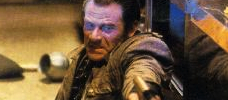
Trancers
1985 -
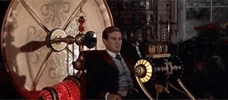
The Time Machine
1960 -

Groundhog Day
1993 -

Warlock
1989 -

The Navigator
1988 -
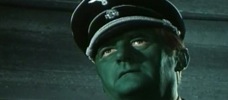
Tomorrow I’ll Wake Up and Scald Myself with Tea
1977 -

The Spirit of ‘76
1990 -
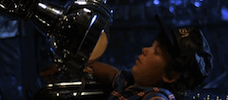
Flight of the Navigator
1986 -
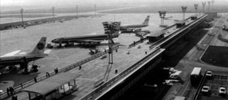
La jetée
1962 -
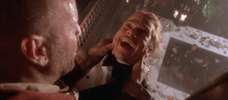
Twelve Monkeys
1995 -

Beastmaster 2: Through the Portal of Time
1991 -
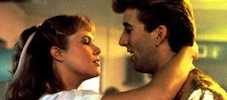
Peggy Sue Got Married
1986 -
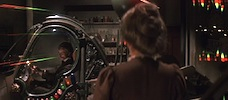
Time After Time
1979 -
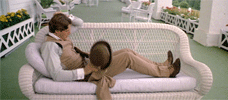
Somewhere in Time
1980 -
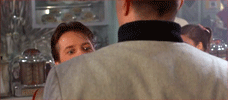
Back to the Future
1985 -

Back to the Future Part II
1989 -
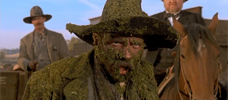
Back to the Future Part III
1990 -
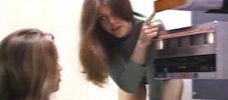
Idaho Transfer
1973 -
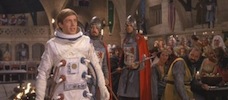
Unidentified Flying Oddball
1979 -

Slaughterhouse-Five
1972 -

The Lake House
2006 -

Time Bandits
1981 -
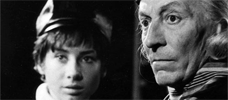
Doctor Who
1963–present -

Doctor Who
1963–present
We don’t do comments anymore, but you may contact us here or find us on Twitter or Facebook.



